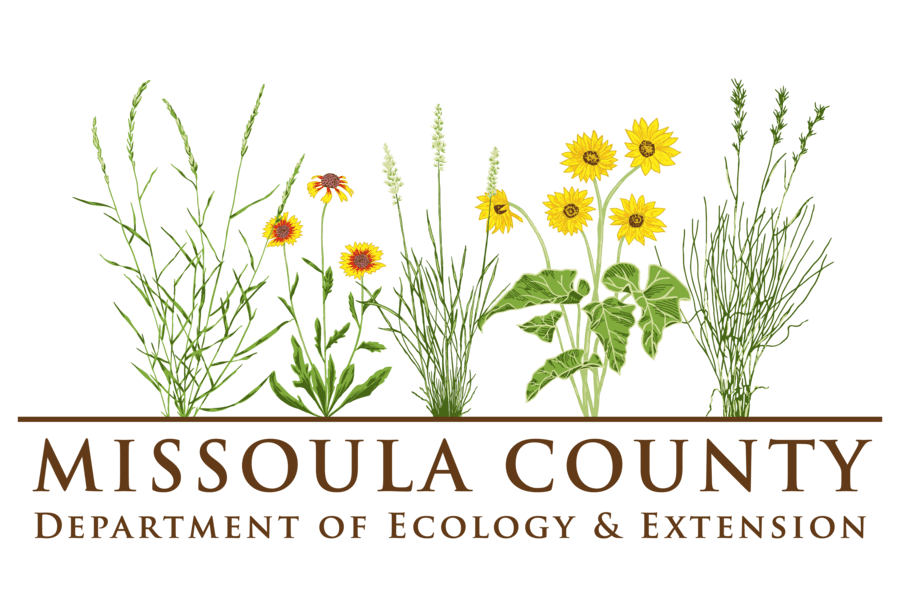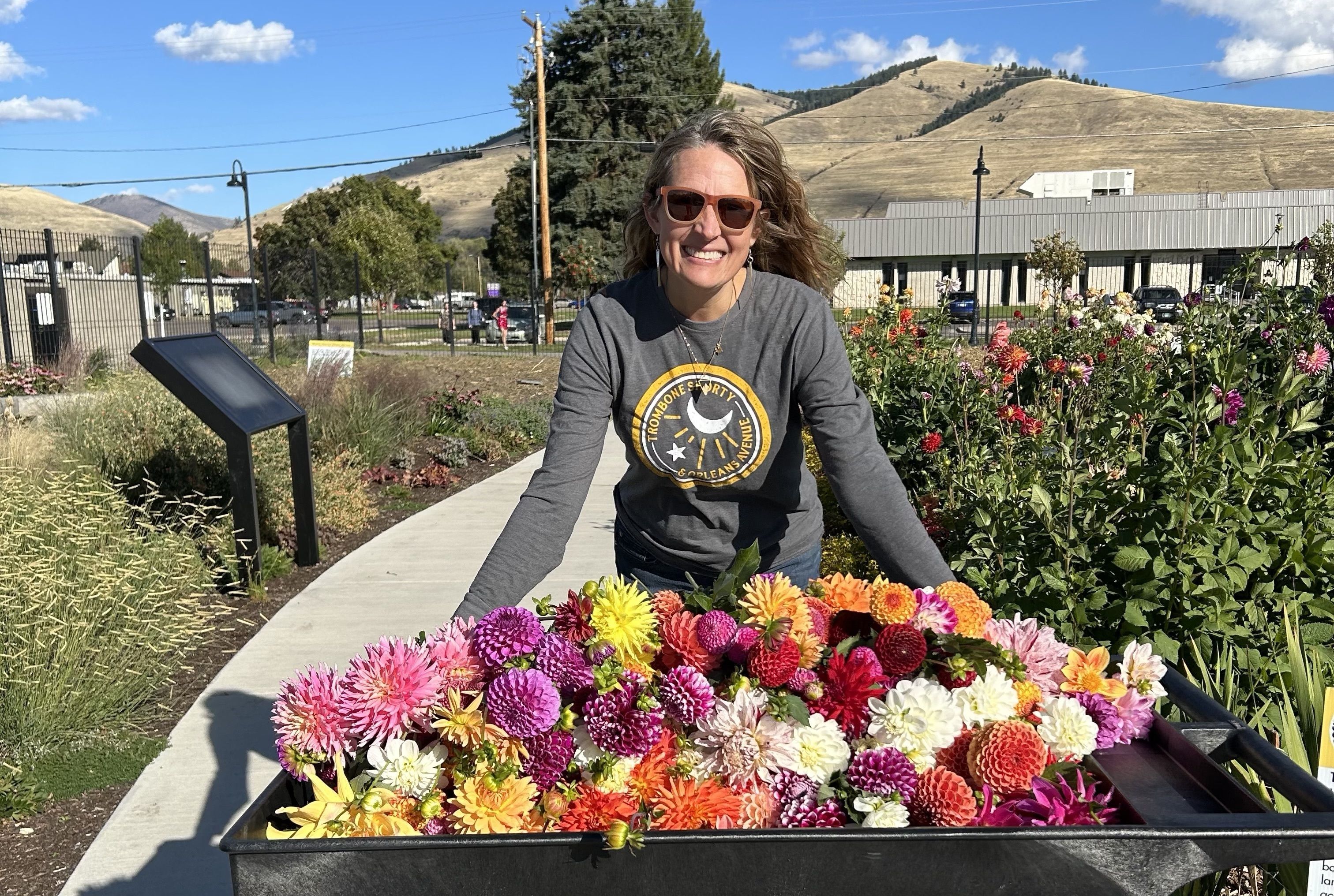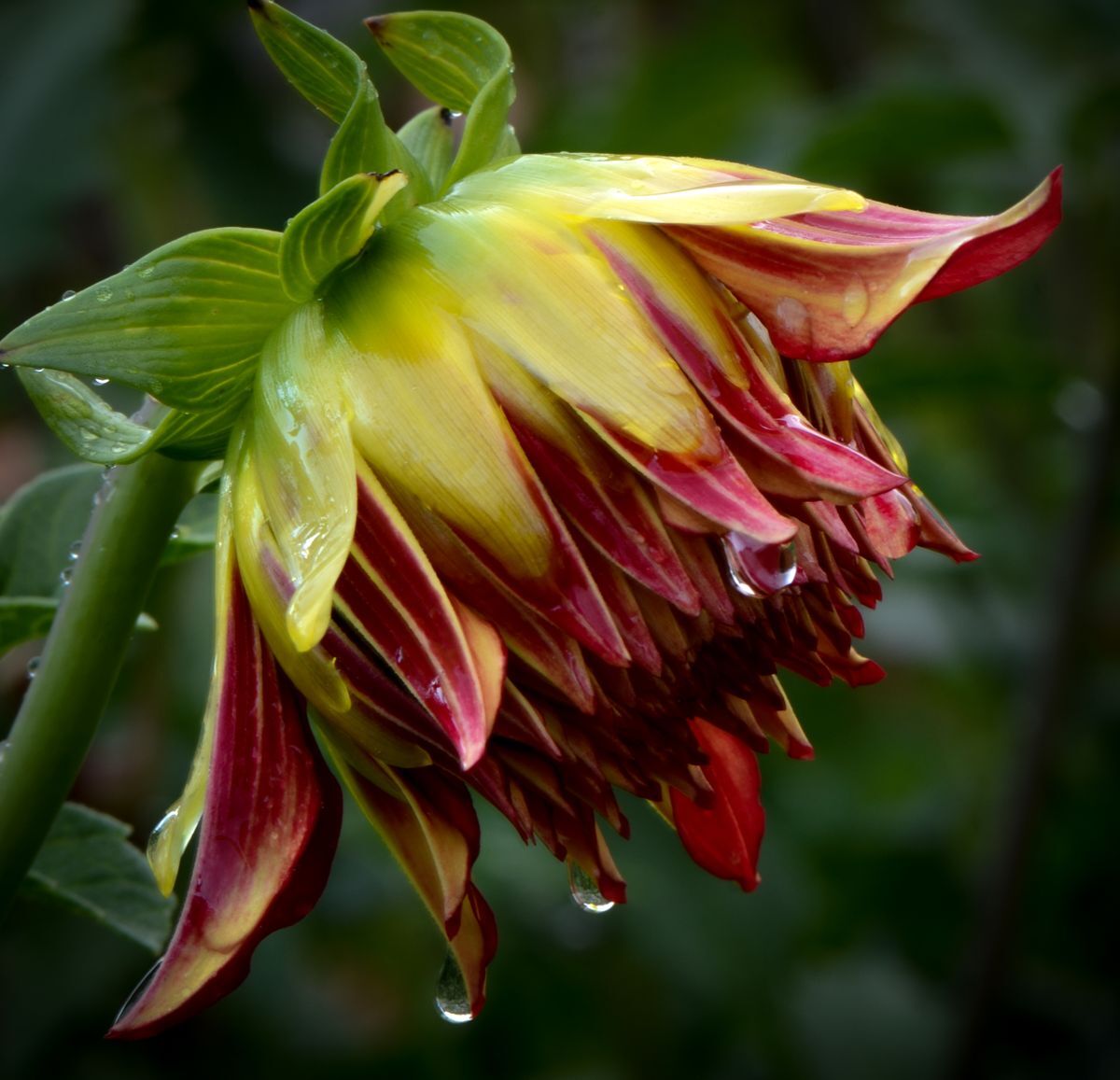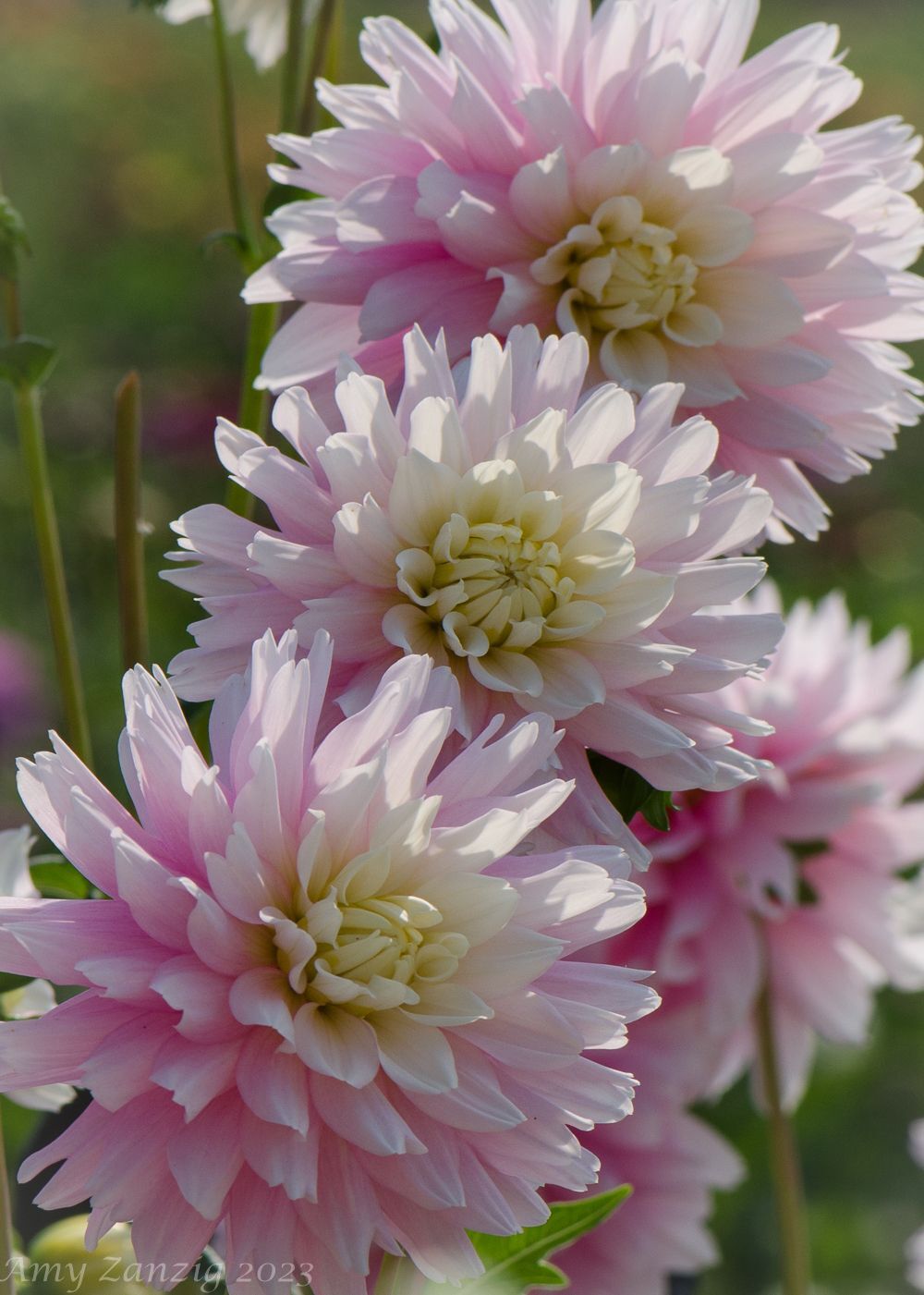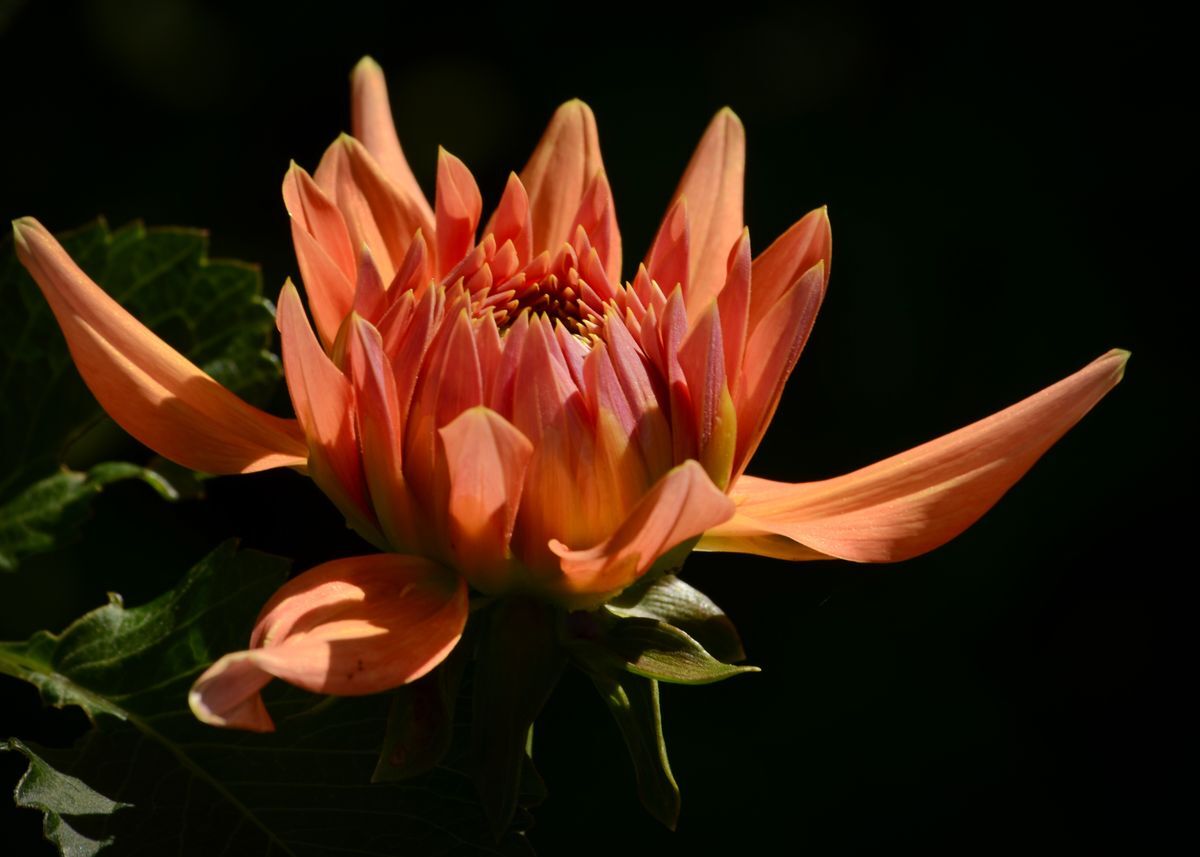Learn to Grow
-
Sort & Label Last Year's Tubers
March 6, Volunteer Event
-
April 12, Presentation & Tuber Sale
-
May 6, Volunteer Event
-
June through September, Volunteer Events
-
July 22, Workshop
-
August 26, Workshop
-
September 11, Garden Walk
-
Dig & Divide
October 21, Workshop
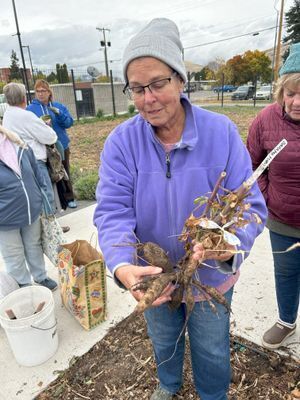
Amy discusses how to dig dahlia tubers to store and replant the following season. Rocky Mountain Gardens, October 2024.
About the Instructor
Amy Zanzig is a lifelong gardener who has grown and shown dahlias in Western Montana for 25 years. She has worked with both local and national dahlia societies, and loves to share the joy of growing these magnificent flowers.
HISTORY
The dramatic Dahlia has a rabid following in the horticultural world.
Specimens like those we grow in our gardens are cultivated for their brilliant colors and unique forms. However, the plants originated in Mesoamerica where they were favpred as a food source. Indigenous people collected the tubers of both cultivated and wild plants for food. In Nahuatl, the language spoken by the Aztecs, the plants were called acocoxochitl, meaning "water pipe flower."
The plants were introduced to Europe in the late 1700s, earning the name Dahlia after the Swedish botanist Andreas Dahl. The brilliance and variety of the blooms captivated botanists and public alike, inspiring a flurry of experimentation. The result: dozens of unique cultivars that are loved by gardeners today.
